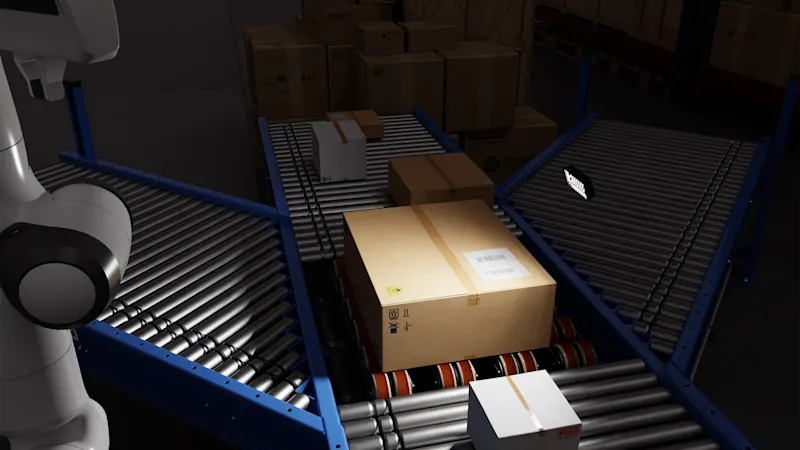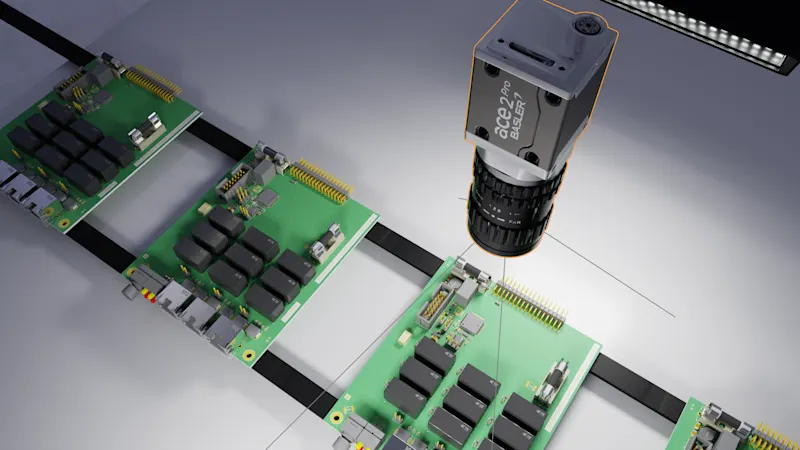Digital Twin
Vision System Simulations save time and resources
We work with you to find the optimal solution for your application: using a digital twin, we simulate the use of Basler hardware in your system and plan the ideal machine vision system – without time-consuming test setups. You'll benefit from our expertise and save valuable time and resources.
Realistic simulation tool
Easily identify the requirements and challenges of the applicationVirtual vision system
Configure cameras, lenses, and lighting without a physical test setupQuickly select the image processing solution
Saves time and resources, giving a competitive advantageBased on NVIDIA® Omniverse
Using real-time ray tracing and physics simulation for digital 1:1 mapping
From the digital twin to the Vision System Simulation
A digital twin is a virtual copy of products, processes, or systems. It reproduces real objects or processes exactly. By simulating your application 1:1 in the digital world, we can arrive at your vision solution faster and in a more targeted manner.
Connecting the real world with the digital world
In the first step, we build the current state in the simulation in great detail. This 1:1 representation of the real world allows us to precisely examine influencing factors and test different configurations—all without the need for elaborate test setups.
Adjust the configuration in the simulation
Because all of our products are integrated in the Vision System Simulator, any errors in the system structure are shown directly on the PC. Is the image sharp? Is the resolution of the camera sufficient? The simulation answers all these questions directly.
Generating synthetic data
By virtually replicating your applications down to the last detail, you receive synthetic data i.e. images of your application. These artificially generated images, together with the ground truth data, can then be used to train AI models for image processing. Thanks to the photo-realistic imaging, the simulation-to-real gap is small enough to effectively use the generated AI model in the real world.
Application Fields for Vision System Simulation
Since we transfer your application into the virtual world, the application fields are almost limitless. This makes it possible to optimize the image processing solution individually for each application.


Logistic
An example in logistics is to use the simulation to ensure that packages of different sizes can be measured and the barcodes on these packages can be read reliably.
Electronics
In the electronics industry, for example, various lighting units can be tested in different positions when inspecting PCBs. This ensures a reliable image processing solution even with difficult, reflective surfaces.
What does "innovation project" mean?
When a project is in the innovation phase, we focus on using our customers' experiences to improve the technology for real-world applications - in this case to see how well the Digital Twin technology performs.
To do this, we want to understand the specific needs and challenges of your application. Based on your feedback, we can improve and move our project forward.
We look forward to having you join our development project!
What information do we need?
Your contact details
How is your application structured and what is the goal?
What challenges do you face where the Basler Digital Twin solution could support you?
Feedback of any kind
Are you already working with NVIDIA® Omniverse? Then we would also be pleased to hear from you
